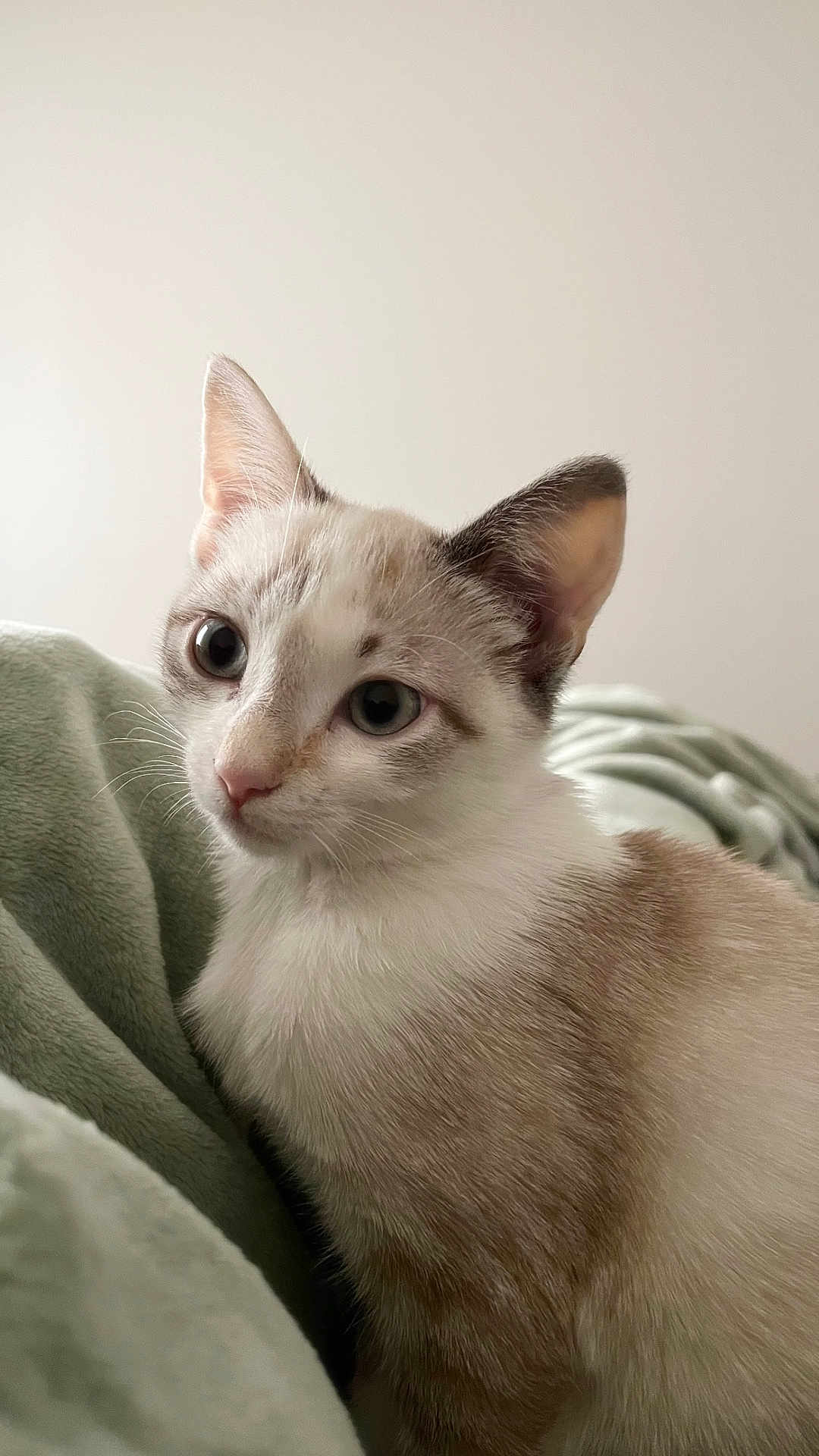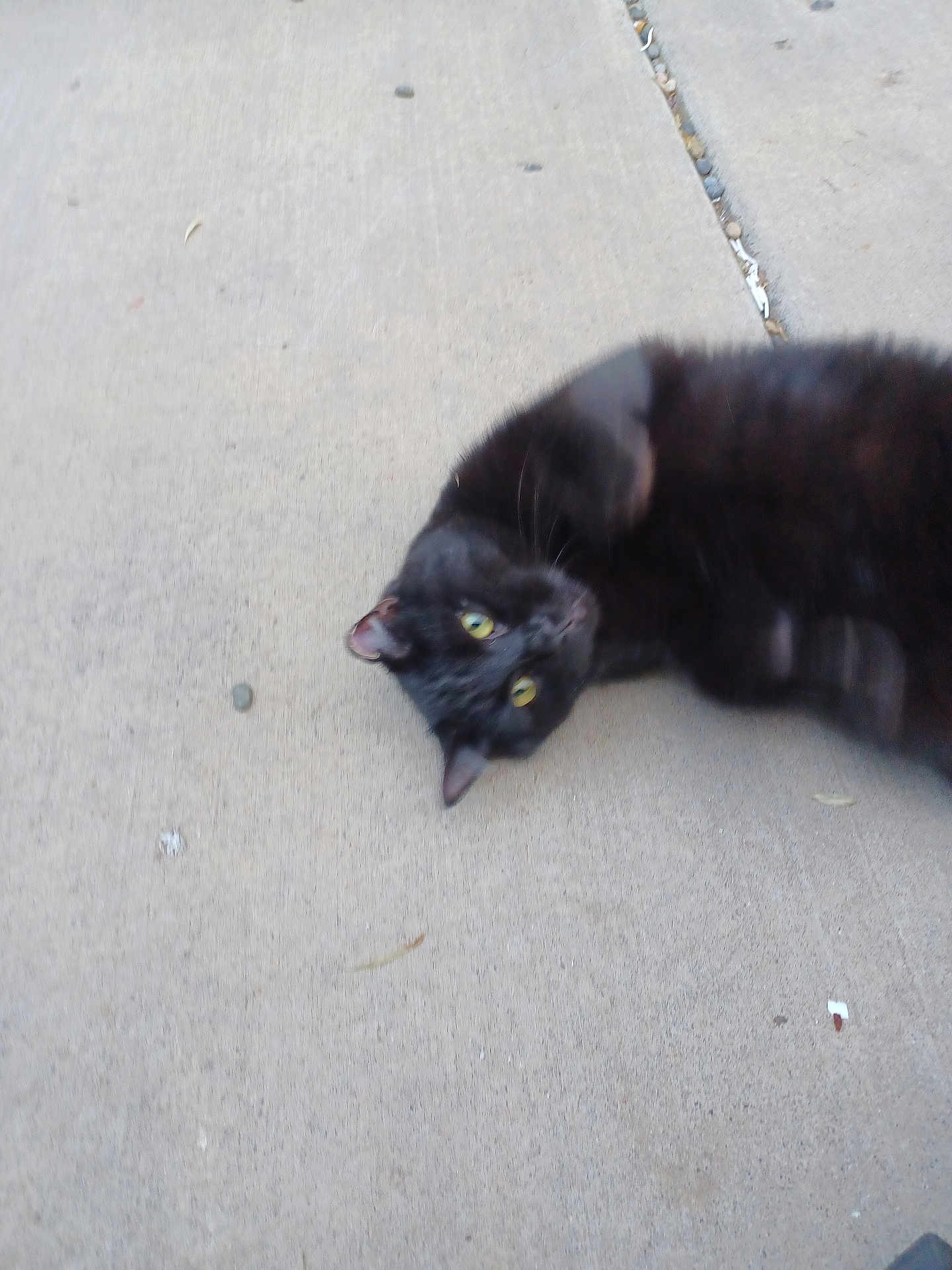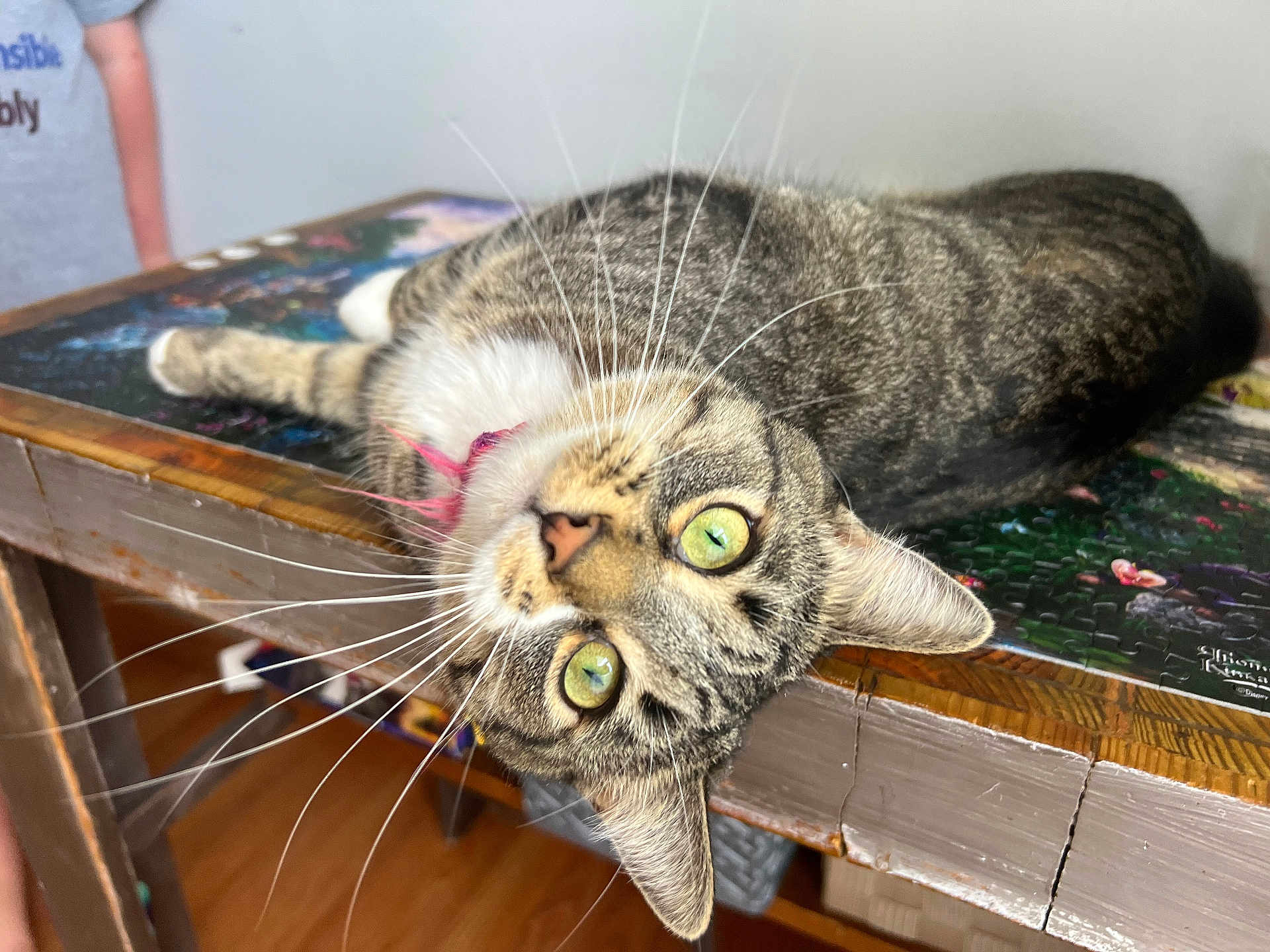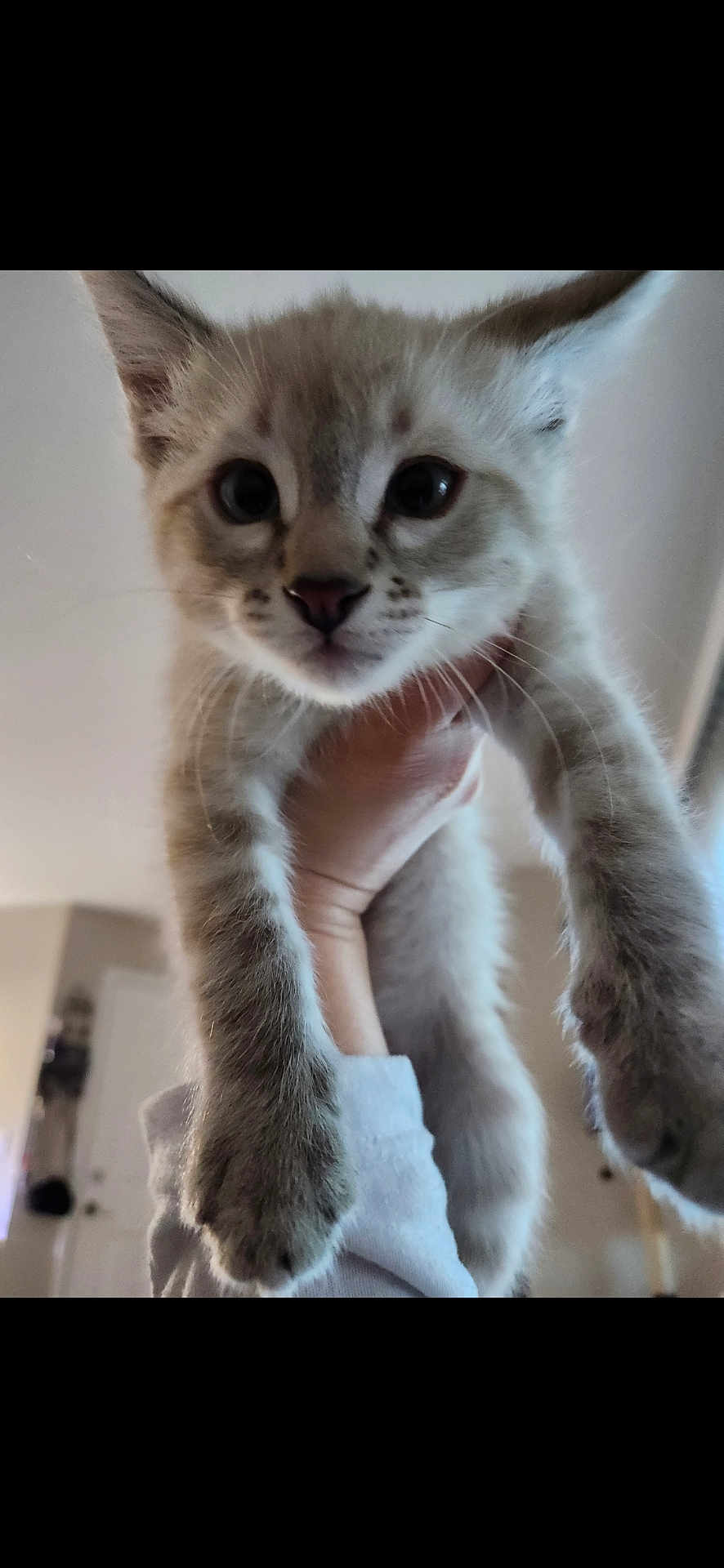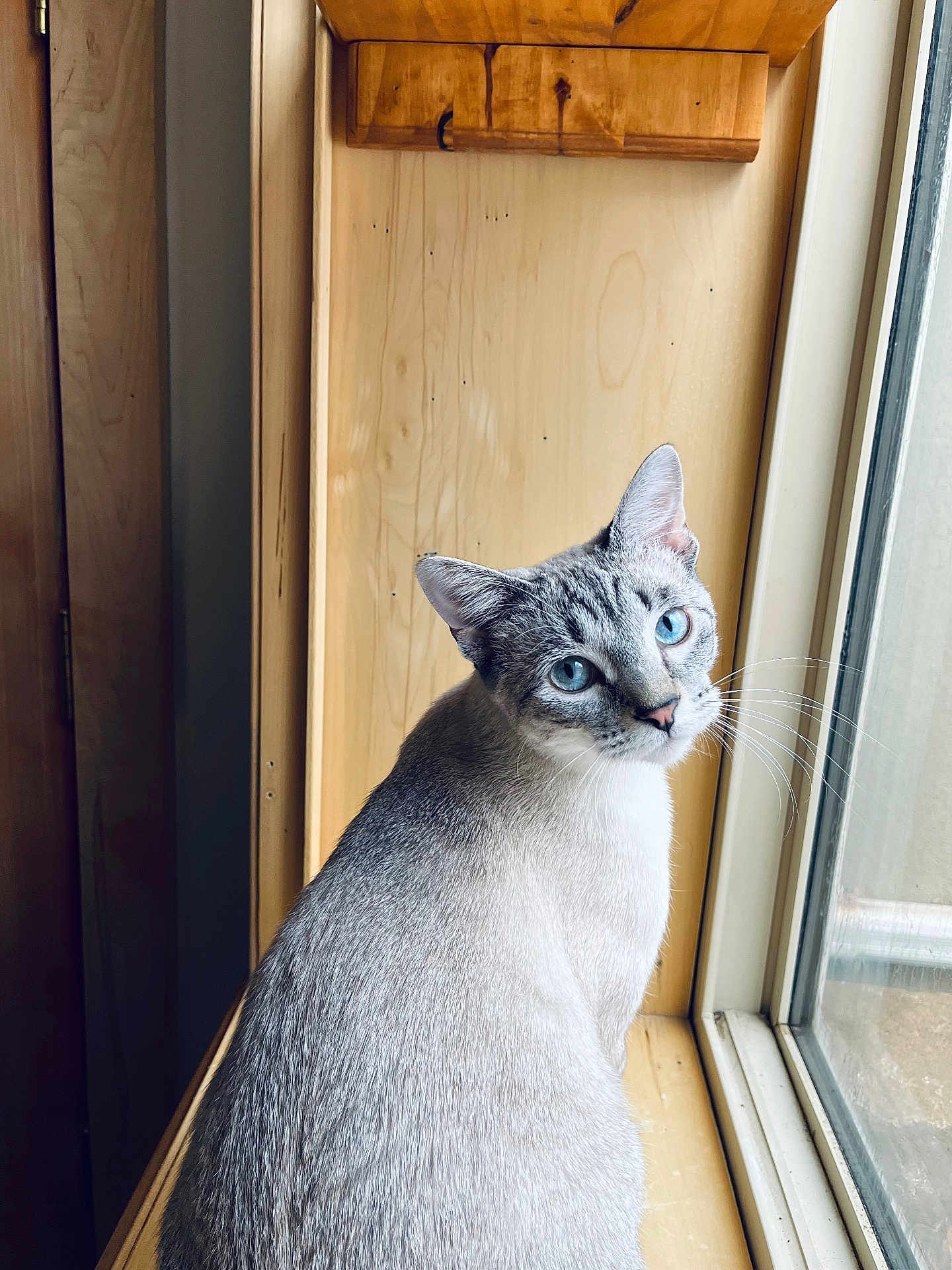"The Domestic Lynx isn't just a striking look-alike of its wild counterpart; it's a cat breed that combines the wild's beauty with the domestic's charm."
Personality and Behavior of the Domestic Lynx
When we talk about the Domestic Lynx, we are referring to a cat breed that melds the raw beauty of the wild lynx with the affectionate nature of our beloved household companions. This breed is often cited as having the best of both worlds. Domestic Lynxes are known for their alert and intelligent demeanor, always seeming to be one step ahead in their environment.
One might find that these cats carry a strong sense of independence. Much like their wild cousins, Domestic Lynxes enjoy exploring their territory and engaging in hunting behaviors, even if it's just with their favorite toy mouse. Yet, this independence doesn't mean they shun social interactions. On the contrary, many owners report a special bond forming once trust has been established, where their Domestic Lynx seeks regular companionship and affection.
For families, the Domestic Lynx can exhibit an exciting blend of playfulness and loyalty. They are often very good with children, as they are both resilient and protective. Anecdotal evidence suggests that many of these cats form deeply rooted connections with younger members of the family, possibly viewing them as part of their pack.
"A fascinating trait about the Domestic Lynx is its ability to remain playful and kitten-like well into its adulthood, ensuring endless entertainment for its owners."
In terms of social dynamics with other pets, Domestic Lynxes generally adapt well, provided their territory is respected. They might exhibit a dominant stance initially but, with time, can become amicable with other cats and even dogs.
Meanings, History and Origins of the name Domestic Lynx
The classification of the Domestic Lynx brings together the allure of a wild lynx with the manageable characteristics of a domesticated cat. Originally, there were attempts to mix breeds that closely resemble the physical traits of a lynx, yet retain the temperaments suited for home life. The name "Domestic Lynx" beautifully signifies this blend of regal wildness and homely tenderness.
Examining the origins of the breed, it is believed that breeders in North America played a substantial role in developing the Domestic Lynx. There was a clear intention to preserve the physical aesthetics of the wild lynx—such as tufted ears and robust body—while ensuring the cat maintained a disposition gentle enough for family life. This influence can be traced back to big cat admirers who desired a 'miniature lynx’ that could roam their homes without any of the risks associated with wild animals.
Historically, the domestication of cats has seen numerous such attempts to integrate wild characteristics into a genial household pet. Elegantly bagging the name 'Lynx', this breed signals both respect for its wild visual appeal and acknowledgment of its adaptability and comfort in domestic settings.
The ‘Domestic Lynx’ serves as a testament to the human fascination with the wild, and our enduring ambition to blend that fascination into our everyday lives in a safe and affectionate manner.
Popularity of the Domestic Lynx
The Domestic Lynx has steadily climbed the charts in terms of popularity. Given its striking appearance and engaging personality, it has become a favored choice among cat enthusiasts who seek the wild look without the unpredictable behaviors. Its popularity continues to rise, especially in urban areas where people want a touch of the wild within the confines of their homes.
In English-speaking countries, the Domestic Lynx has found a steady fanbase. Their popularity surged particularly in the United States and Canada, where their unique features set them apart in cat shows and pet competitions. These countries have always had a deep appreciation for distinctive and unusual pet breeds, so the Domestic Lynx fits right in.
Outside of North America, the Domestic Lynx is also gaining traction. In Europe, especially in countries like Germany and the Netherlands, the breed's exotic appeal has captured the interest of cat aficionados. Even in Asian countries, where unique and eye-catching pets are highly prized, the Domestic Lynx is carving a niche for itself.
The international recognition of the Domestic Lynx is fueled not just by its appearance but also by endorsements from celebrities and features in media. Social media platforms have countless pages and groups dedicated to the Domestic Lynx, where owners showcase their pets' playful antics and majestic looks.
Health and Care of the Domestic Lynx
The well-being of the Domestic Lynx is pivotal for ensuring a long and joyful life. Generally known to be hearty and robust, this breed, like every other, has its share of health concerns that owners should be vigilant about.
Diet plays a crucial role in the health of a Domestic Lynx. A balanced diet, high in protein to cater to their active nature, is recommended. Including a variety of wet and dry foods often helps in maintaining their hydration and oral health. Regular veterinarian check-ups are essential to preemptively address any potential health issues, such as dental problems or obesity, which can affect this breed if not carefully monitored.
Another aspect of their care involves ensuring they get enough mental and physical stimulation. Domestic Lynxes retain their wild hunting instincts and benefit greatly from interactive toys and climbing structures. This not only keeps them active and fit but also helps in preventing behavioral issues arising from boredom.
Common health problems that owners should be wary of include hypertrophic cardiomyopathy (HCM), a heart condition common among many cats, and certain genetic predispositions that might come with rigorous breeding practices. It’s suggested to get your Domestic Lynx from reputable breeders who provide clear health guarantees.
Lastly, grooming for the Domestic Lynx is relatively low-maintenance. Their coats are usually short to medium, which means weekly brushing will suffice to keep their fur in prime condition. Regular nail trimming, ear cleaning, and dental hygiene should also form part of the care routine.
Training and Education of the Domestic Lynx
Training a Domestic Lynx can be a fulfilling and engaging experience, given their high intelligence and curiosity. Unlike some more stubborn breeds, Domestic Lynxes are generally responsive to training, particularly when positive reinforcement techniques are employed.
Understanding the breed’s wild instincts is paramount. They enjoy routines that mimic hunting activities, so using toys that can simulate prey can be particularly effective. Treat-based training sessions often yield the best results. The Domestic Lynx responds well to praise and interaction, making clicker training a popular method among owners.
Some owners have even succeeded in teaching their Domestic Lynx more complex behaviors, such as walking on a leash or executing agility courses. Again, patience and consistency are key. It's important to ensure that the training environment remains stimulating yet controlled, as Domestic Lynxes can easily get distracted.
When it comes to socialization, starting young is ideal. Exposure to different people, environments, and other animals from a young age will result in a well-rounded and confident cat. This kind of early socialization will help reduce any anxiety or territorial tendencies typically associated with cats with such a strong independent streak.
House training, such as using a litter box, usually progresses smoothly with Domestic Lynxes. They tend to be naturally clean animals, making it easier for them to adopt favorable habits. However, ensuring the litter box is always clean and situated in a quiet, easily accessible location will help to reinforce good behavior.
Training isn’t merely about discipline; it fortifies the bond between owner and pet. Understanding and catering to the individual temperaments within the Domestic Lynx breed can lead to a harmonious and fulfilling companionship.
Domestic Lynxes, much like their wild counterparts, are a breed that thrives on attention and engagement. Their majestic look and engaging personality make them an excellent companion for those willing to understand and nurture their unique nature.
The Domestic Lynx holds a special place in the hearts of its owners and is a notable contestant in numerous KingPet photo contests. Adopting a Domestic Lynx means embracing both the thrills of wild elegance and the comforts of a loyal domestic companion. This breed is undoubtedly an intriguing addition to any household, promising years of affectionate and exhilarating companionship.

